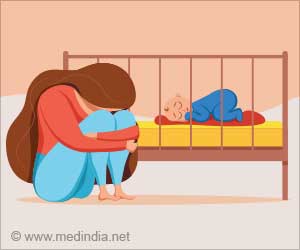New year is just a few days away and the Omicron cases are rising. Fear has gripped the hearts of people and most of them are having sleepless nights.
- Many people have experienced insomnia during the Covid-19 pandemic
- COVID-somnia can be caused due to fear, concern for loved ones and financial worries
- Get a good night's sleep during the pandemic by being intentional about your sleep habits and routines
“COVID-somnia can be brought on by multiple stressors: fears about the pandemic, concern for loved ones, financial worries, and limited socialization,” said Jennifer Martin, a licensed clinical psychologist who is president-elect of the AASM board of directors.
“The best way to get healthy sleep during these unprecedented times is to be intentional about your sleep habits and routines.”
So, what’s the difference between having occasional trouble falling asleep and experiencing insomnia? For one thing, insomnia involves both a sleep disturbance (problems falling/staying asleep) and daytime symptoms such as fatigue or irritability.
Men (59%) were more likely than women (54%) to report COVID-somnia sleep disturbances. Those 35-44 had the highest rate of COVID-somnia at 70%. Those 55 and older were most likely to report trouble falling or staying asleep.
Try out these tips to get your sleep on track for 2022:
- Maintain a consistent sleep schedule – Most adults should try to get at least seven hours of sleep a night, regardless of pandemic-related changes to your typical work routine. It’s also important to go to bed and get up about the same time every day, including weekends.
- Turn off electronics – Reducing your screen time helps your body prepare for sleep, while avoiding news and social media before bed can reduce stress. Turn off your electronics at least 30 minutes before bedtime.
- Follow a relaxing evening routine – Start unwinding at least 30 minutes before bedtime with quiet activities like reading or meditating, or relax by taking a warm bath or shower.
- Create a peaceful sleeping environment – A cool, quiet and dark room is best for sleeping. Keep TVs off and store smartphones and other devices outside your room. At the very least, set your phone to silent mode!
Source-Newswise











